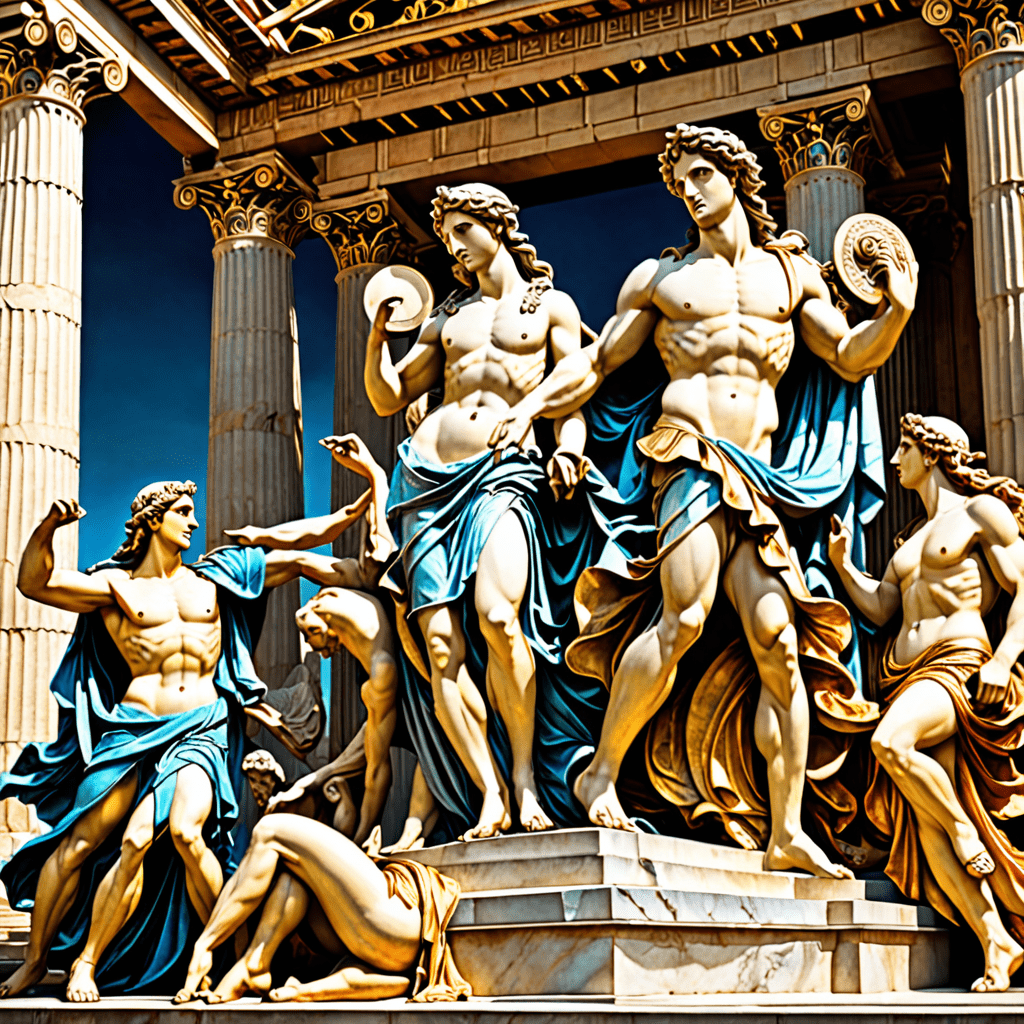The Symbolism of Colors in Greek Mythology
Color symbolism plays a significant role in Greek mythology, representing various themes, emotions, and characteristics associated with ancient Greek gods, heroes, and legends. Let’s explore the symbolic meanings attributed to different colors in Greek mythology.
White: Purity and Divine Light
In Greek mythology, the color white symbolizes purity, clarity, and divine light. White is often associated with gods, goddesses, and heroic figures known for their virtues and righteousness. Athena, the goddess of wisdom, is often depicted wearing white robes, symbolizing her wisdom and purity. White also represents peace and harmony, as seen in the white doves of Aphrodite, the goddess of love and beauty, signifying her message of love and serenity.
Black: Mystery and Death
Black holds a symbolic meaning of mystery, darkness, and the unknown in Greek mythology. It is associated with the night, underworld, and death. Hades, the god of the underworld, often appears wearing black robes, representing his connection to the realm of the dead. The color black also symbolizes the unseen forces and hidden truths within the mythological stories, adding an air of mystique and intrigue to the narrative.
Red: Passion and Power
Red symbolizes passion, energy, and power in Greek mythology. The color red is often linked to Ares, the god of war, representing his fiery and aggressive nature on the battlefield. Red also embodies love, desire, and vitality, seen in the passionate relationships between gods and mortals in myths such as the romance of Eros and Psyche. Additionally, red reflects the intensity of emotions and the strength of determination displayed by Greek heroes facing formidable challenges.
Gold: Wealth and Immortality
Gold holds a symbolic significance of wealth, prosperity, and immortality in Greek mythology. It represents the divine and eternal qualities of gods and goddesses who possess great wisdom and power. The Golden Fleece pursued by Jason and the Argonauts symbolizes not only wealth and fortune but also the quest for eternal glory and immortality. The shimmering golden apples of the Hesperides embody the allure of everlasting life and divine gifts awarded to the worthy.
FAQ about The Symbolism of Colors in Greek Mythology
What role do colors play in Greek mythology?
Colors in Greek mythology often symbolize various aspects such as emotions, traits, or associations with gods and goddesses. Each color carries a unique significance that enriches the narratives and characters in these ancient tales.
Can you provide examples of color symbolism in Greek myths?
Certainly, for instance, red is often associated with passion, love, and courage, representing the deity of war, Ares. While blue or sea-green hues symbolize tranquility and divine purity, often linked to Poseidon, the god of the sea.
How do colors enhance the storytelling in Greek mythology?
Colors act as a visual language that adds depth and layers to the characters, settings, and events in Greek myths. They help convey emotions, foreshadow events, and highlight the divine or mortal nature of beings within the stories.



